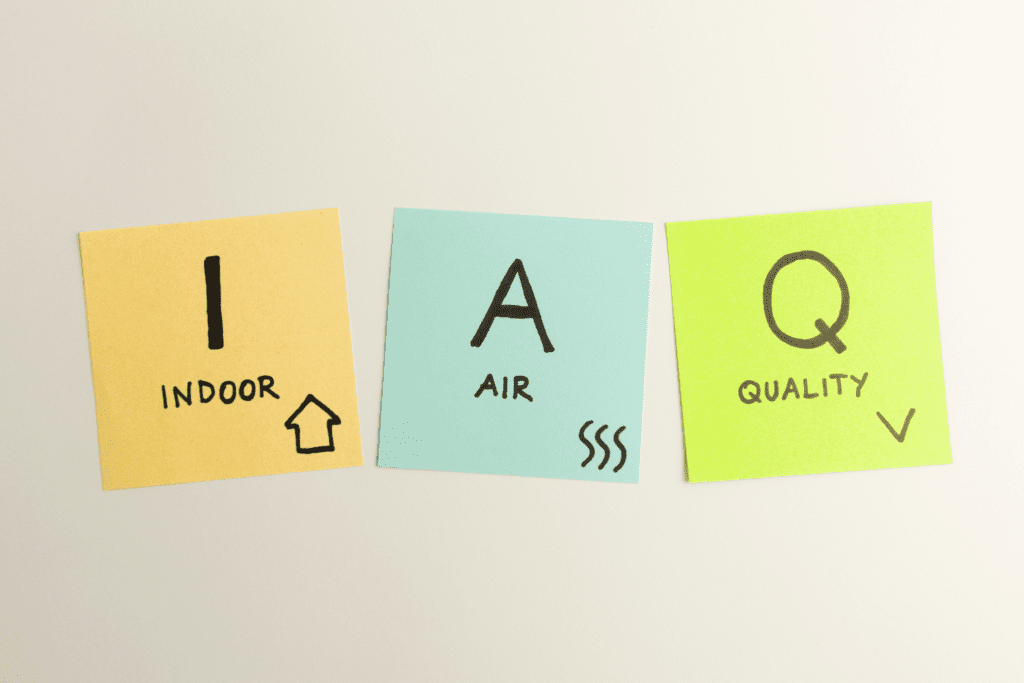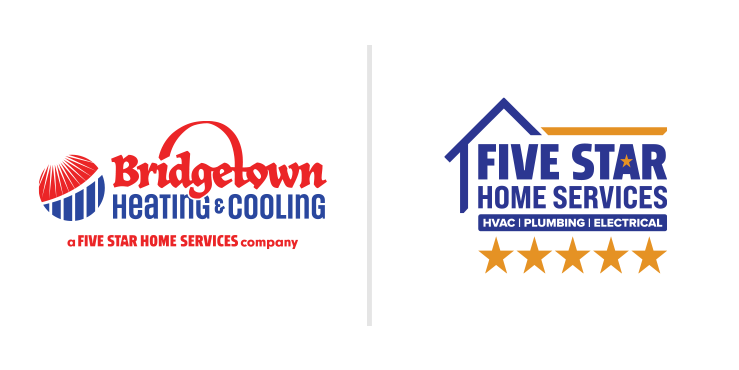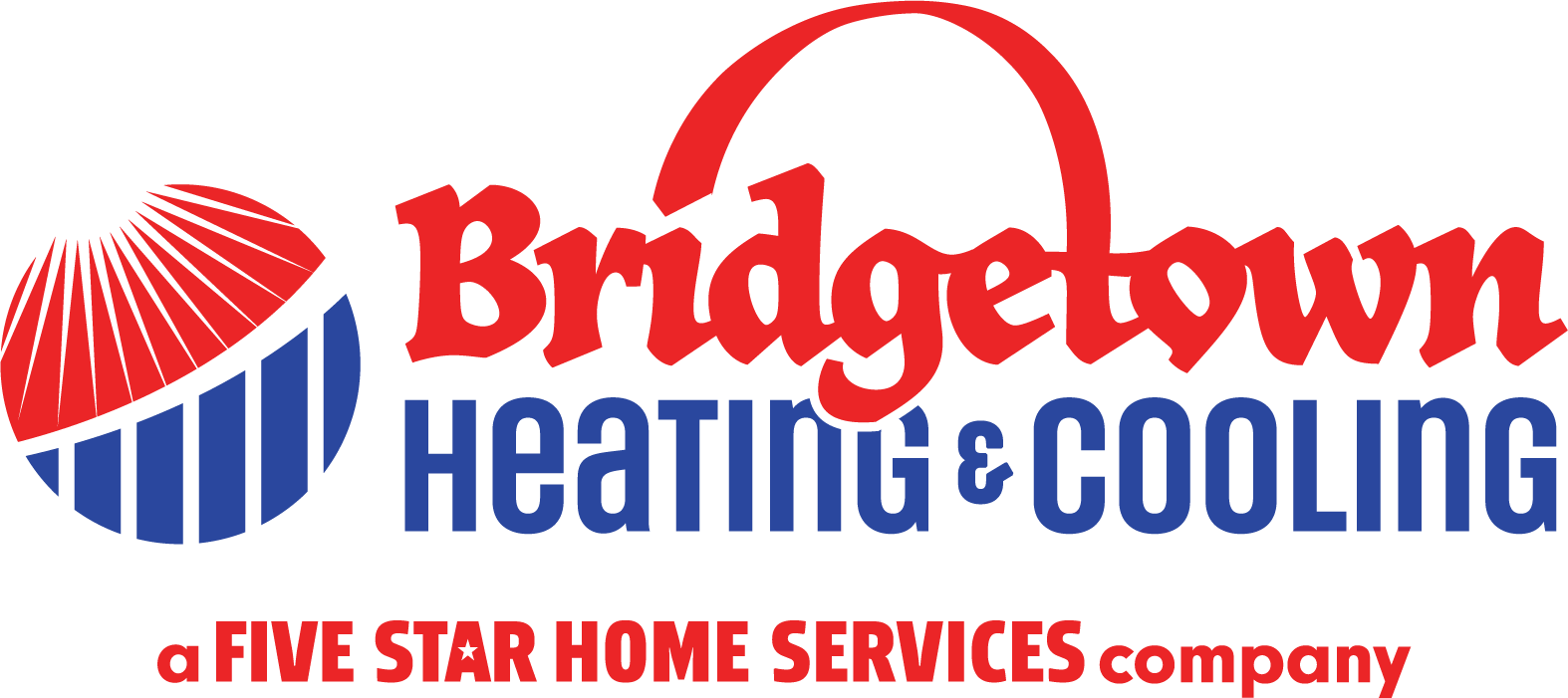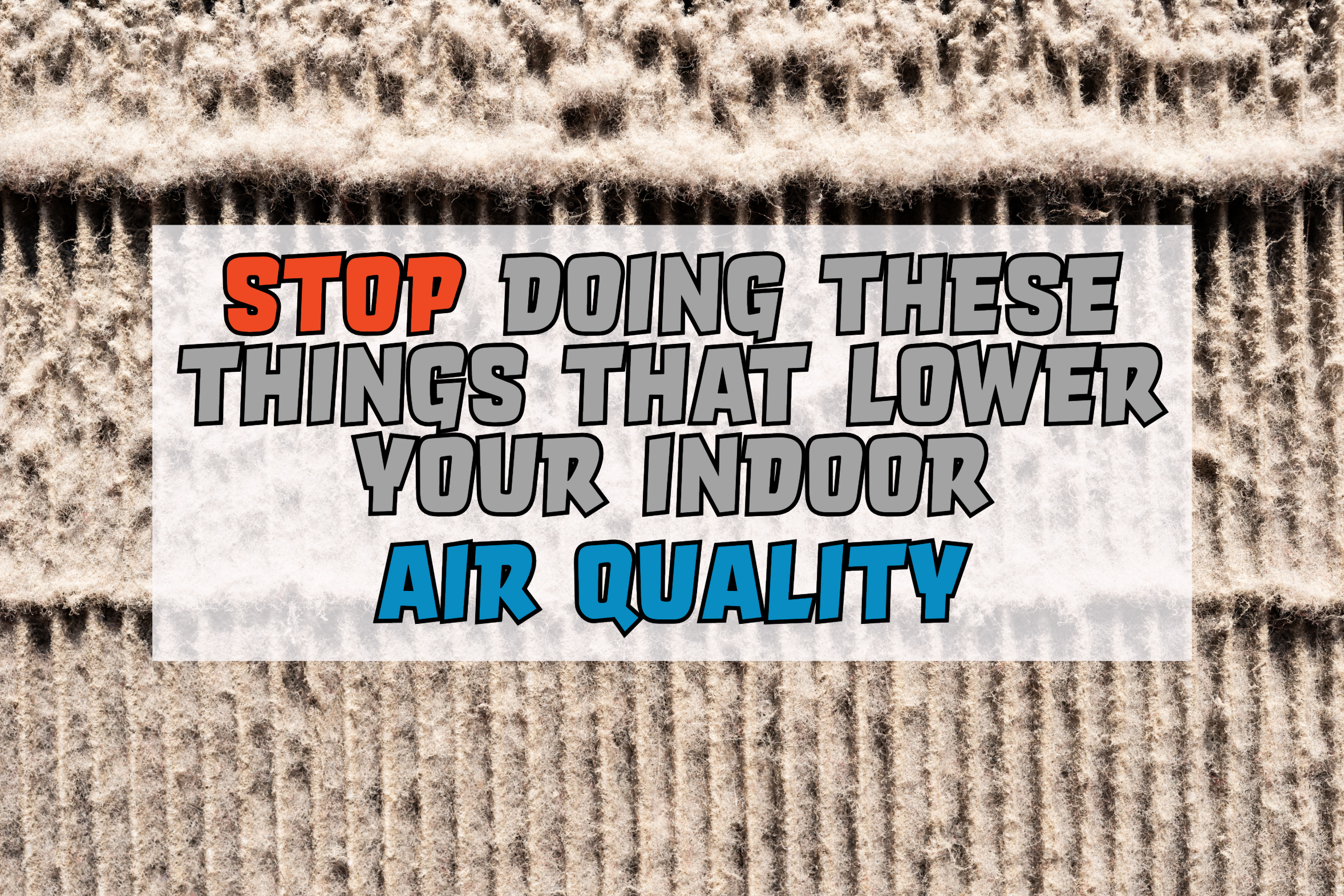In recognition of National Clean Air Month, now is the opportune moment for your experts at Bridgetown Heating & Cooling to underscore the significance of maintaining superior indoor air quality (IAQ). It may come as a surprise, but indoor air can be up to five times more polluted than outdoor air. This is attributed to the continuous recirculation of air within a home without adequate filtration or ventilation. Enhancing the indoor air quality of your residence is a crucial aspect many homeowners don’t think about. No judgment; there’s a lot to worry about in the craziness of life. But if you consider the majority of time that is spent indoors, it makes sense to do whatever you can to stop doing things that lower your IAQ, but do the right things to raise it instead.
Examples of Airborne Pollutants That Lower Indoor Air Quality
- Dust and other airborne particles
- Germs
- Viruses
- Mold and mildew
- Pet smells/Pet dander
- Tobacco smoke
- Cooking odors
- Humidity
- Airborne chemicals
- Allergens
- Pollen
1. Stop Going Long Periods Without Changing Your Air Filters
With an abundance of tasks demanding attention, it is commonplace for some to be inadvertently neglected. However, it’s so important to change your air filters on time as much as possible. Air filters are pivotal in ensuring the quality of indoor air, capturing dust, dirt, pollen, and various pollutants. As these particles gather on the surface of the filter, its efficacy in trapping additional pollutants diminishes. This natural course of action then compromises the filter’s efficiency to clean the air in your home appropriately.
Instead:
Generally speaking, you should replace your air filters every 1-2 months, but this also depends on the type of filter you use. Remember, by consistently changing your air filters, you can diminish the presence of dust, dirt, and other pollutants in your environment.
2. Stop Letting Odors Build Up, and Your Home Stay Stuffy
Smells happen, it’s totally natural and nothing to sweat about. Whether it’s cooking smells, pets, or just stuff you do around the house, odors can sneak up and stick around, making your place feel stuffy and kind of messing with the air quality inside. Plus, some smells can actually be bad for your health if you ignore them. Pollutants from harsh chemicals in cleaning products aren’t exactly wholesome to breathe in.
Instead:
Consider utilizing a whole-home air purification solution such as the iWave-R. This system is designed to integrate seamlessly with your existing HVAC unit, utilizing patented technology to cleanse the air by removing odors and harmful particulates. A notable advantage of the iWave-R is its self-cleaning feature, significantly reducing maintenance requirements. As a result, you can enjoy enhanced air quality with minimal additional effort, beyond the initial installation.
OR
Another effective solution is the integration of UV lights. These lights are professionally installed within the air ducts, positioned strategically to neutralize airborne pathogens before they circulate throughout your residence. On top of that, these UV bulbs really only require replacement only once every 2-3 years, which (in our opinion) really highlights the convenience of their use.
3. Stop “Just Dealing” with Moisture In the Air
If you have a home that feels particularly humid, you don’t just have to “deal” with it. Excessive moisture in a home can mark the onset of mold. This leads to respiratory complications and other additional health concerns. So, keep an eye out for moisture indicators like water stains on ceilings or walls, musty smells, or even window condensation.
Instead:
If you have high humidity levels in your home, it is advisable to invest in a whole-home dehumidifier. This apparatus operates in conjunction with your HVAC system, effectively reducing air moisture, thwarting mold development, and enhancing the quality of indoor air. Additionally, it contributes to lowering energy expenses by diminishing the workload on your air conditioning unit.

By adhering to these recommendations, you can absolutely enhance your home’s indoor air quality, remove unpleasant odors, inhibit mold proliferation, and potentially achieve energy savings. It is important not to overlook these practices—integrate them into your regular household maintenance schedule. A happy and healthy home begins with clean and efficiently managed air.
Call Bridgetown Heating & Cooling today at (513) 273-1335, or schedule an appointment online now by clicking here!






